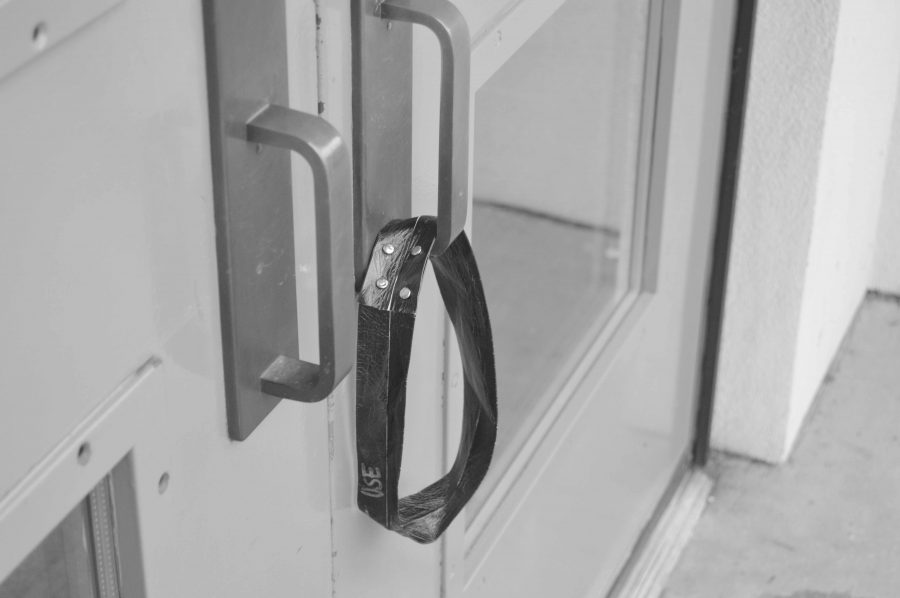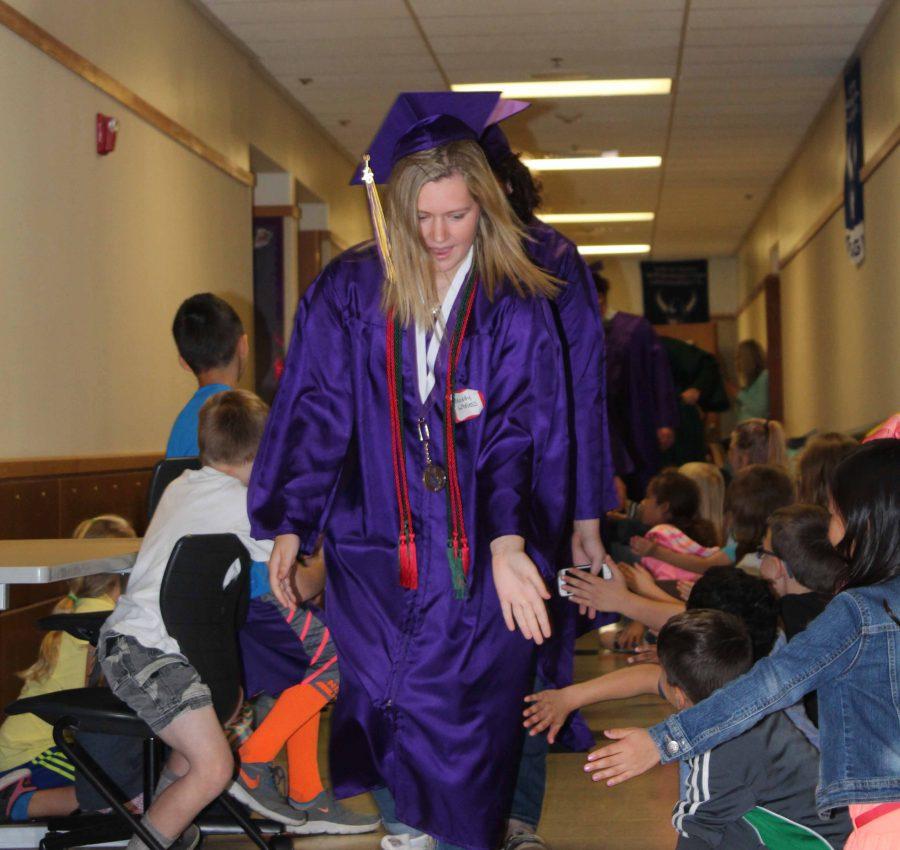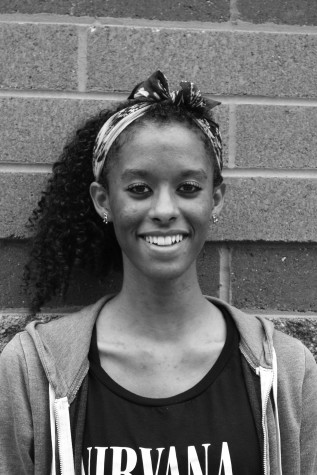Perhaps it is ironic, the idea that social media may only be serving to inhibit the social interaction people have with others in their daily lives.
Psychology and APUSH teacher Willie Walker states that social media is beginning to put considerable restraints on the face-to-face social interaction people have.
“Everyone is on their phone wherever you go. No one talks to each other anymore. There is no social interaction with talking anymore which is starting to make people not be able to respect and talk to one another,” Walker said.
AP Gov. and AP Psychology teacher Matt White reveals how social media has inhibited the process of building strong connections with other people.
“People do not actually engage in talking with other people now. It is not just you and another person’s relationship with one another; it is you and that person’s relationship plus everyone else. That is really difficult in relationships,” White said.
Walker says that social media and cell phone use also puts significant limitations on students’ progress in their education.
“In some ways, cell phones are killing education. Cell phone use in class has become a problem. Especially when you tell a student they cannot have their phone in class and they become upset about it and say ‘Other teachers let me have my phone out.’ Students are here to learn,” Walker said.
According to Walker, social media and cell phone use encourages distractibility in the academic lives of students.
“In class, cell phone use drops students’ attention spans. Students do not do their homework anymore and they turn in everything late, yet they are on their phones all day long,” Walker said. “That is not just regular students either. I see it in AP students and I see it in college students. I teach college classes and my rule is if you are not taking notes on your phone, I better not see it and I better not hear it ring,” Walker said.
White asserts that social media has become so prevalent in people’s lives that it has become a part of their existence.
“No one can go anywhere without their phone. It used to be that you could not go anywhere without your keys. You would walk out the door with your keys and your wallet. Now it is your keys, wallet and your phone. Phones have become a part of everything. They have become a part of who we are,” White said.
Walker expresses that though social media may be an easier method of communication and staying connected, it is not always conducive to the building of relationships with others.
“Since I teach psychology, I would definitely say that social media is easier [to communicate with] but the etiquette of it is not good because it does not build real social interaction,” Walker said. “You have to be able to read people’s body language and emotions to see how they really feel. Through texting and social media you miss all those social cues that you would normally get in face-to-face conversation,” Walker said.
Despite some of the alternative communication forms that social media provides, White says that such digital forms of interaction may only do more harm than they do to help the process of building connections with others.
“Relationships require actual interaction with someone, like common experiences. Online interaction has a little bit of that but people can say horrible things online because there are no restrictions to what you can say or do as there are in a real world relationship,” White said.
White reveals that one of the reasons cyberbullying may be so difficult to handle is due to its easy exposure online where it is constantly viewable.
“There is a psychology term that is called ‘cyberostracism’ in which people are ostracized or cyberbullied. I think for teens, cyberbullying makes a gigantic impact. Let’s say a kid gets bullied or ostracized at school,” White said. “Back in the day, bullying just took place at school and the kid could go home and it stayed at school. Now what is said follows you everywhere because it is on your phone. That could have an increase on anxiety issues and therefore an increase in things like depression,” White said.
Walker says that social media may actually promote social isolation rather than social interaction.
“I think social media makes for a lot more introverts and socially isolated people. Those are the people who tend to have more problems in society down the road because they do not know how to work with others,” Walker said.
According to White, social media can be misleading when it comes to building relationships with others.
“Social media is instant gratification. When you post something, it is reinforcement. Now, it is whether someone liked your post or if someone gave you a thumbs up. Every time someone makes a comment on your post, it is reinforcing,” White said. “It makes you feel good and it makes you feel like people like you. Even though they are not ‘liking’ you, they are liking your post but people take that as people liking them. That is a falsehood in a relationship. They are not really liking you for you, they are liking you for what you posted.”
Due to social media’s accessibility and speed, Walker expresses that people are becoming more impatient in their everyday lives.
“Social media is quick, easy access to everything. Everyone wants everything to be so quick now. You can get a quick answer for anything. It is just a part of our technological revolution that we are in now. People have changed,” Walker said.
Despite all of its complications, Walker reveals that social media can be used to the benefit of all people.
“Social media can be used successfully, even in class. It can be used well if people just learn how to use it appropriately. Society needs to find a way to use cell phones correctly in education,” Walker said. “With some of my AP classes that I teach, cell phones are a must. Students have to have them in order to do research. However, I also have noticed that a lot of students abuse that privilege. Cell phone games are going to destroy our society.”
According to the Center for Disease Control and Prevention [CDC], there are approximately 100-200 suicide attempts for every completed suicide attempt due to cyberbullying and bullying. Walker states that this is when social media can begin to impact people’s health.
“Social media can become dangerous when people start to use it to cyberbully others. The number of people who commit suicide because of cyberbullying is ridiculous. It just does not resonate well with me when someone becomes so weak to the point where people can control them over the internet,” Walker said.
White states that Yik Yak, a site for people to post things online to people in their area can be a form of social media where cyberbullying is prevalent.
“Yik Yak, which is commonly used at colleges, would be one site with lots of room for horrible things to be said or done. It is local and only people in your area can post and the posts are anonymous posts. You can get all sorts of posts with people saying and doing horrible things and lot of cyberbullying,” White said.
According to Walker, being able to exercise self-control can prove useful when dealing with social media.
“Just turn off your computer, turn off your phone. When someone says something bad about you over social media, why answer it, why look at it when you can just block them or delete it? The problem in society is that people just want to know everything that is being said about them. People want to know everything,” Walker said.
Walker encourages people to assess whether their use of social media has become unhealthy.
“Social media becomes unhealthy once you realize that you cannot live one day without it. I have seen that before in people where they lose their phone and it is as if it was the end of their life. Their world is over. That is when the attachment to social media becomes too serious,” Walker said.
According to White, social media can become a problem if people are not able to go about their daily tasks without it.
“Social media becomes a problem if you cannot go a day without texting your friend or if you cannot go a day without Snapchatting, Instagramming and Tweeting. That is the whole reason why you see kids in class who cannot leave their phones alone. That is a problem when social media beings to own you instead of you owning it,” White said.
White states that though social media is associated with a lot of negative stigma, there are times when social media can be useful.
“Social media can be beneficial if you are in a long distance relationship and staying connected to people who are not close. That was probably the original intent of social media,” White said.
Though the irony of social media and its potential limitations on people’s social interactions can cause considerable setbacks, Walker asserts that social media may be the way to move forward in society.
“Although I do believe that society is headed in the right direction in terms of using technology to their advantage, I think people still need to just learn how to use it correctly and to use technology with etiquette. Social media is one of those things where you need to just learn the proper time to use it, the proper place to use it. However, technology is a good thing; it is a great thing in fact,” Walker said.



